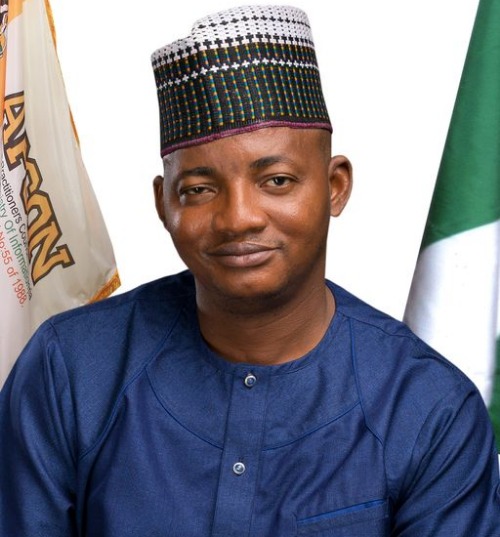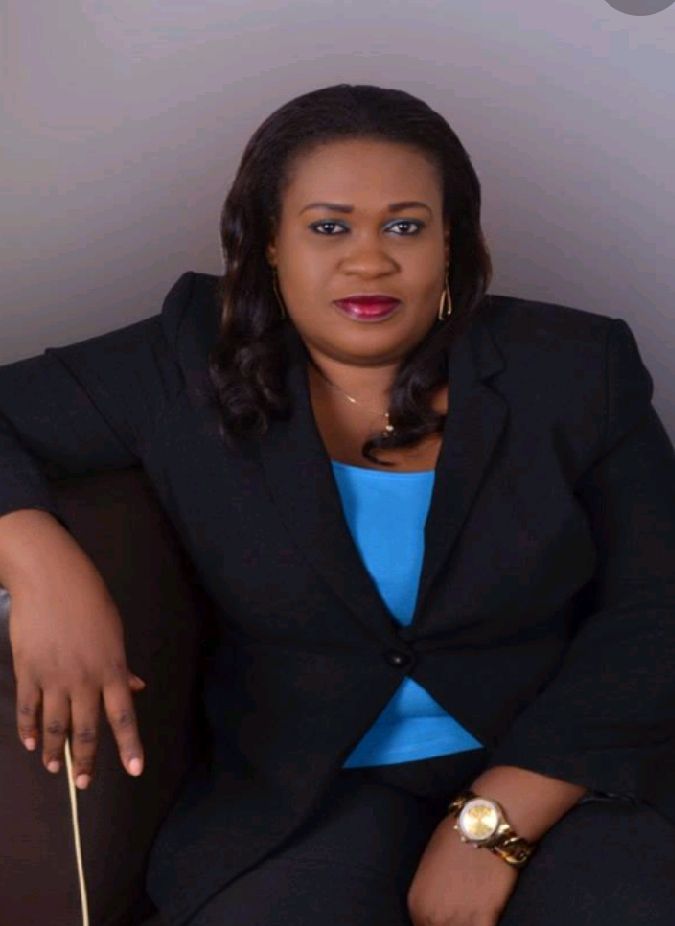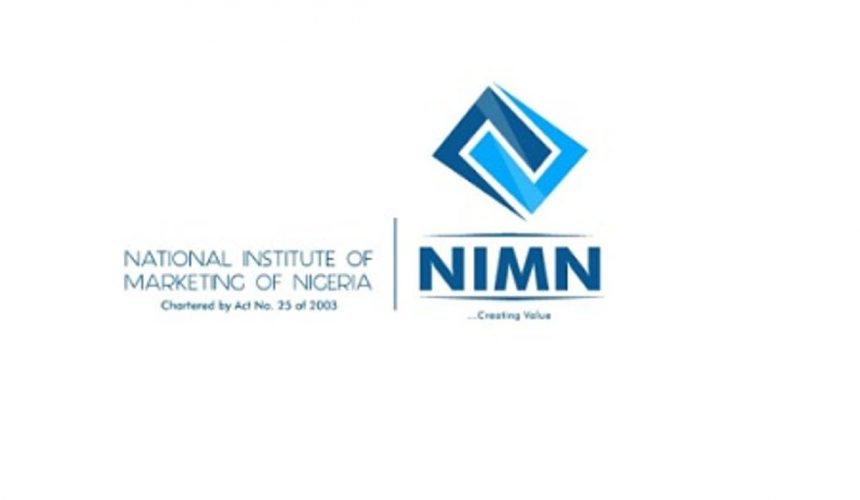Dr. Lekan Fadolapo is the Registrar/CEO, Advertising Practitioners Council of Nigeria(APCON). Prior to his present position, he was the Executive Secretary, Association of Advertising Agencies of Nigeria(AAAN) . With over two decades’ experience in the advertising industry, many have described his appointment as the helmsman at the advertising regulatory body as deserving. Ever in his best elements especially when the subject matter is advertising, the cerebral APCON boss in this interview with MARKETING EDGE’s Kasim Bakare, speaks on critical issues affecting the advertising industry and the on-going reforms aimed at tackling them. Excerpts
Your appointment was hailed by stakeholders in the industry because of your vast experience and knowledge of happenings in the advertising industry. Having been in the saddle for almost a year as APCON Registrar, what do you consider the major challenges facing the industry?
One of the challenges of the advertising industry is the unbundling of the profession. Advertising is now more of marketing communication. Years past, we had one advertising agency offering supermarket of services. In one agency, you would have creative, experiential, Activation, Above the Line(ATL), Through the Line(TTL), strategy, branding, activation, media. Twenty years ago, when MIPAN came, the media independent said they could no longer remain with advertising and they left. Experiential people also left. Creative people are planning to perform off-shore. Account management people are leaving and saying they want to become consultants. So, new professions will come up. Before now, media was on guesstimate. But now, media is no longer on guesstimate. You need to do proper media plan, strategy. Buying media now is not because I know you. You need to support it with insights and data. Likewise experiential, when you are putting your money behind activation, you will expect them to come back with a research to the extent that you can ring it up with your ROI. Digital is taking a new shape because our market or profession is now data-driven. We can’t live in the past and think that we can be relevant in the future.
Another issue plaguing the industry is the issue of nagging debts and payment cycle bordering on client-agency relationship. We cannot continue to do the business of advertising the way we have done it before. This issue is beyond the media independent and the outdoor. It also involves advertising agencies. Several years ago, there were claims and counter claims on the real value of advertising debt Some said the debts stood at N25 billion while there were counter claims that it was N40 billion. I remember a time when, a committee, which I was part of, was set up to reconcile industry debts. Presently, we have gone past that stage and we have set up a committee to look at it.
Sometimes ago, there was a client that owed so many agencies. So, the group of creditors came together to blacklist the client. Needless to say that the decision was not effective because some of those who held the meeting still went back to do business with the said debtor. That is the kind of environment we have found ourselves but as APCON, we must ensure there is sanity in the industry. If you are a chartered accountant or you an auditor and your client is firing you, there must be procedure in doing that. If you engage a marketing communication company and you are firing the company, you have a right but there must be a professional procedure to do it. Before a debt can be declared as bad, there must be a procedure.
Recently, APCON signed an MOU with NBC on the issue of debt in the broadcast media. We have also commenced work on audience measurement for the broadcast media. We are extending this to the outdoor and print. We are going to look at building data and research. We cannot continue to do the business of advertising the way we have done it in the past. In other climes, advertising practitioners are billionaires. We have an industry that is reputed to have an annual billion in the region of N200-300 billion and at the end of the year, you have little to show for it. We are waiting for the National Assembly. The committee in charge of the standard operating procedures has done its first report. Before the end of this year, we are going to set new rules for MIPAN, OAAN,AAAN,EXMAN as operating manual or procedures for the practice of advertising in Nigeria.
We are coming up with policy on credit and terms of engagement. We may not adopt the policy of Kenya because we are operating in a different working environment. What we did at APCON was to set up a committee where we had representatives from the sectoral groups on the committee. Now, we are coming with a policy with terms of engagement. The policy will stipulate how a client can sack its agency.
What are the policies and regulations by APCON to protect local content and expertise in the advertising industry?
We are trying as much as possible to protect the advertising jobs of Nigerians from encroachment by foreigners. Our laws have gone through several readings and public hearings and we are tuning it up now. A situation where a foreign creative Director is hired to work in Nigeria and he is paid N5 million and whereas you have a Nigerian of the same status, caliber and position being paid like N200, 000 is going to be a thing of the past. How do we intend to do that? For every foreigner that is coming to work in this industry, they need to get an approval from APCON. This is the only way we can secure our profession.
In a similar vein, the Honourable Minister of Information, recently gave a directive to APCON and NBC that all ads should be done in Nigeria and failure to which a fine would be served on errant stations airing those ads. So, we want a situation where our own experts are also involved in the entire communication space so that we do not continue to play second fiddle to some organizations or foreigners which ultimately leads to capital flight in the industry. We also want to ensure that the environment is conducive for everyone to practice the profession. We will provide a healthy business environment and ensure that the practitioners are also protected.
One of the few things we are doing now as part of our corporate licence requirement is to evaluate the remittance of pension by advertising agencies to government. This means that you cannot employ your staff as an agency without contributing your statutory contribution to government so that it will be deducted. So, when the staffs are leaving, they have something to fall back on. For the employees, we will protect them, for the employers, we will prepare them for the expectation. For the people that are coming to the industry, they can see a better future.
APCON has also set up a committee to some up with standard of practice(SOP). Some of the areas covered by this SOP is the issue of credit policy, contract, payment policy and things related to client-agency relationship. It’s not just for clients and agencies, the media is also affected. We are coming up with a policy that will take care of all stakeholders in the industry.
Following the pronouncement by the Honourable Minister of Information on penalty for broadcast stations airing foreign produced ads on Nigerian broadcast stations, the Heads of Advertising Sectoral Group (HASG) issued a joint statement to reject the government policy noting that they were not consulted before the decision was taken despite the government claiming it was in the interest of the industry, has APCON reached out to the sectoral heads for a common ground on the issue?
On that issue, we have engaged the HASG. We recently had a meeting with them. Individually,), we have also been having the conversation with those self regulatory agencies(SRA’s) of how to move the marketing communication industry forward. Everybody believes in organization but there is a very thin line between globalization and localization. Take for instance, the famous Guinness ad, ‘My friend Udeme”. It was a global campaign by Guinness but they had to localize the ad to ensure that it resonated with the market. S O&U did that Ad and the name of their MD is Mr Udeme Ufot. They needed to bring that message home. What we are saying is that if we are bringing a foreign material to our market, it must add economic value to our own ecosystem. We may not agree on certain things but looking at it the other way round, the Media Independent Practitioners Association of Nigeria(MIPAN) members are complaining that some people even bring in foreign shot ads without even their involvement. You can’t go to South Africa and do a campaign and expose it in their market without the input of their community. It’s so bad that they have black empowerment to the extent that there must be percentage of blacks coming from that community. So, there is no government that will allow anything that comes from abroad all in the name of free market. There should be some level of regulation. Sometimes ago, I had a conversation with an agency and the head of that agency told me that they have their affiliate in South Africa and the affiliate told them that they should harness their consumer insights data in Nigeria and send it to them in South Africa. They wanted to do media planning for them. So, when they finish the media planning, they just send it to the agency in Nigeria to do placement. Now we need to legislate that research, consumer insights and all those figures you need to plan your media does not leave Nigeria because if not, they will turn the media independent agencies to just media buying agencies. There are three stakeholders in this whole conversation- primary key stakeholders, secondary key stakeholders, and also voice over artists, models. We have other people that are involved in that value chain who don’t even have a voice.. The interest of Nigeria and Nigerians must come first. We are talking to them and we are all aligning on this position
The digital implosion brought a challenge of how to regulate and control digital advertising. Is Digital advertising under the purview of APCON and how have you been able to regulate advertising in that space?
One of the first problems we had in the attempt to regulate digital advertising is the challenge of even defining social media. One of the things that is fast changing apart from unbundling the profession called advertising is the fact that technology is playing a major role in redefining the way our practice is being done.. Artificial Intelligence(AI), is taking a front lead. So, you cannot just sit down and assume things are well. Software are being developed to write copy. So, what is going to happen to copywriters? But don’t forget that no matter how you develop your copy with AI, the copy software cannot resonate with the environment and market. it may not come with the craftsmanship because it is garbage in garbage out.. So, for one to stay relevant, one must begin to see how to take advantage of the technology using originality and craftsmanship. Several years ago, we were using the still board but today it has been replaced by digital boards. Now some of them have even moved to interactive outdoor boards.
APCON does not have control over the activities of digital media space owners like Instablog on facebook and the likes. For the advertisers too, we don’t regulate them. However, for everybody working within the space of digital agencies, they are to be licenced by APCON. Some advertisers of some products that would have drawn the sanctions of APCON or BON usually circumvent the law using the digital media space to advertise their products.
Many of the problems we have suffered in this country is that for every infraction, the sanction should be huge and serve as deterrent to other people. But you know the position of the law. For instance, the use of foreign model by any agency by our law attracts a fine of N500, 000.. Our law is in the National Assembly and we are reviewing it. But how much is a fine of N500,000 committing such infraction? if somebody is using a foreign model, he would even pay in advance because how much is N500,000. We are looking into that to ensure that the penalty for such infraction would be heavy and serve as a deterrent to others.
How far have you gone with the industry reform instituted some years ago to ensure professionalism and protect the interests of stakeholders in the advertising industry?
In 2012, the advertising industry approved a proclamation that introduced the licence regime as part of the industry reform. Nine years after, we are still struggling with that reform. Last year, I made a presentation to the Honourable Minister of Information on several issues concerning the industry. One of the good things that will happen to this industry is for us to have full implementation of the industry reform. Gladly, the Minister approved it that we should go ahead to fully implement the reform.
One big problem in the advertising is that we have concentrated more on the practice of advertising and we have left the business of advertising to suffer. That is what has led to most of the challenges the agencies are facing. The business of advertising has to do with how the business should be done. Advertising should not be seen as a passion. It is a business that has its basics and fundamentals and it should be treated as such. One of the major changes that the implementation brought about is the corporate licence regime. Back then, it was not the duties of APCON to issue licence to agencies but now APCON does. Through that procedure, we are able to tell agencies to take care of their staff. The National Assembly is supporting us and we are sure that by the special grace of God, before the end of this year, the law review supporting corporate licence regime would have been completed. When the new law is passed, we would be changing our name from Advertising Practitioners’ Council of Nigeria(APCON) to Advertising Regulatory Council of Nigeria. What this means is that our space will cover advertising in all its ramifications. The people that are practicing now and exploiting the lacuna in our law will be covered under that.
Many analysts have complained that the quality of mass communication graduates churned out by our higher institutions of learning are falling abysmally low due to the curriculum . What is APCON doing to ensure that the curriculum at our higher institutions conform to the required standard in the industry?
The gown and the town should always meet at a point. Academics by their nature teach theories. The practice of the advertising profession differs. This not peculiar to advertising alone. It also happens in all professions. For example, if you studied accounting in the university and after graduating, you are employed, the cash book that you will see at your workplace will be completely different from the one you learnt in school. In fact, some of the things you learnt in the university like 2 column, 3 column, 4 column cash books, you may never come across them while you are working.. Where and how do we bridge the gap?
Some years ago, APCON made a presentation to National Universities Commission(NUC) on the reason for un-bundling mass communication. If you want to do mass communication, you get to your final year before you start specializing in advertising or broadcast media e.t.c. they cannot offer you the kind of education you need. Six years ago, I was in my final year in my P.hD programme and a professor came in and started telling us in the class that the biggest advertising agency in Nigeria as at then was Lintas, followed by TBWA. It really got to me and at a point I raised up my hands and said, Lintas? Though there was no figures to back any claim of which agency was top then, but obviously it wasn’t Lintas. If you wanted to talk about the biggest agency, you would be talking about Insights. How could you mention top 7 agencies without mentioning Insights or Prima Garnet? The professor was amazed as to how I was privy to such informed and I told him I was the Executive Director of AAAN. It was at that point that he listened to me and I did school him on the state and history of advertising in Nigeria.
That has always been the thing. We have made proposal on what should be the curriculum of advertising. Only few institutions in Nigeria are offering advertising as a first degree and we look forward to changing that narrative.






Comment
No comments found.